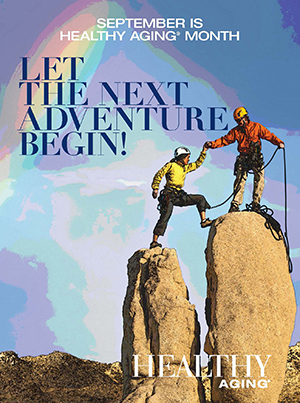 By Marta Zaraska
By Marta Zaraska
I used to be obsessed with nutrition. Simple but healthy was not good enough; I was chasing the best.
I would add turmeric to every possible recipe and read product labels carefully to ensure that all ingredients were 100% organic. I cooked wild rice despite my daughter’s resistance. Exercise was constantly on my mind too—how many minutes, on what level of intensity, and did I address all muscle groups?
I’m certainly not alone.
When it comes to health and aging, we are fixating on all the wrong things: miracle diets, miracle foods, and miracle supplements, to name a few.
We skip gluten and invest in exercise gadgets. We obsess about body mass index. We swallow vitamins.
Americans spend over $32 billion a year on more than 85,000 different dietary supplements, ranging from probiotics to protein powders. In surveys, No. 1 health behavior is proper hydration and No. 2 is diet.
However, studies show that although nutrition and physical activity are important for health, there are things we all sacrifice that have a big impact on our centenarian potential: friendships, purpose in life, empathy, kindness, and volunteering.
Science says these “soft” health drivers are often more powerful than diet and exercise. After reading hundreds of research papers and talking with dozens of experts in various fields of study—including molecular biochemistry, neuroscience, and epidemiology—I came to realize that a lot of my effort to ensure my family’s good health was misplaced.
We would have been better off investing some of our precious time into our community and our social life and working on our mindsets—from optimism and conscientiousness to finding meaning in life—something that the long-lived Japanese people call ikigai.
Consider the numbers: Studies show that building a strong support network of family and friends lowers mortality risk by about 45%.
Exercise, on the other hand, can lower that risk by 23% to 33%. Eating six servings of fruit and vegetables per day can cut the danger of dying early by 26% while following the Mediterranean diet can cut the danger by 21%.
For volunteering, it’s 22% to 44%. And it’s not just strictly about mortality either. People who volunteer may have a 29% lower risk of high blood glucose, about 17% lower risk of high inflammation levels, and spend 38% fewer nights in hospitals than people who shy away from involvement in charities.
Happily married people not only live longer but are also more likely to survive heart attacks and respond better to flu vaccines. Even things such as your outlook toward life matter for physical well-being.
Optimism can add as much as 10 extra years onto your life while having so-called “D-type” personality ups your mortality risk and makes you more prone to deadly heart attacks. The “D” here stands for “distressed,” as in experiencing a lot of negative emotions such as anger, irritability, sadness, and fear. People with “D-type” personality have shorter telomeres, and their inflammatory proteins are as elevated as if they are 10 years older than they really are.
There are physiological reasons for why your social life and your psyche matter for your health and longevity. Social hormones such as the “love hormone,” oxytocin, as well as serotonin and endorphins link our behaviors and our physiology.
So does your vagus nerve—the longest of the nerves that emerge directly from the brain, which is responsible for breathing, swallowing, and digestion and has been implicated in sudden deaths reported among the tribes of Africa and the islands of the Pacific.
And then there are also the trillions of microbes in the human gut, also connecting our mental and physical well-being.
There are lots of practical implications in all of this, something that I’m now trying to implement into my daily life.
For instance, I follow the Japanese “five-house rule,” which states that you should keep a close relationship with people in the three houses opposite yours, as well as those who live in the houses to your left and to your right.
During the coronavirus lockdown, I chose to call my family and friends instead of texting. One study showed, for instance, that hearing your mom’s reassuring words on the phone causes a larger oxytocin release than receiving similar support through a text message. Oxytocin, in turn, improves the functioning of our immune systems.
I also settled for cooking healthy but simple meals—no turmeric or kale or organic chia seeds—and spent the saved time talking with my husband, remembering to touch and look directly into his eyes (it ups oxytocin). All this has likely not only helped boost my physical health but also helped me grow as a person, even if just a little bit, to become happier and kinder and helped me smile more often.










